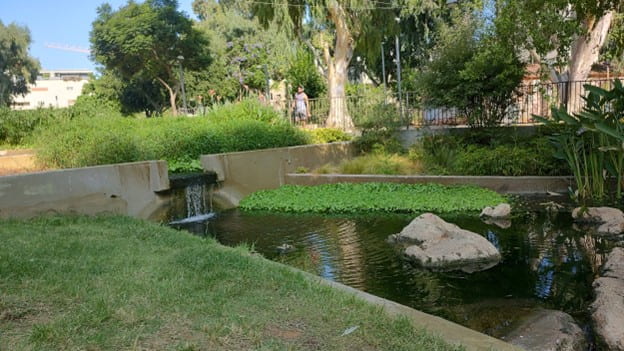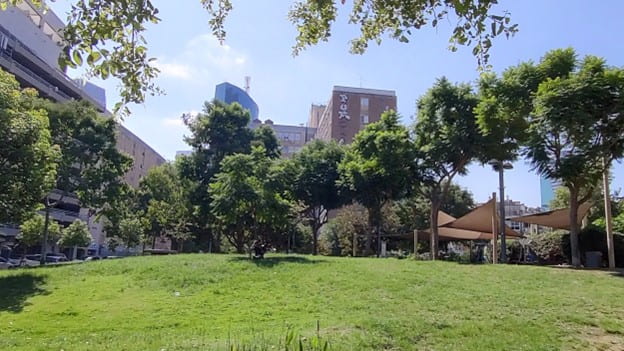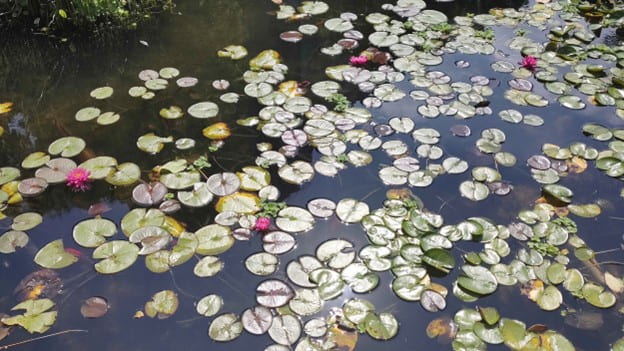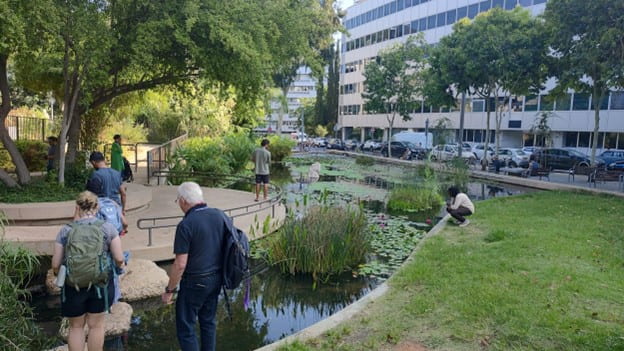Transboundary water management
By Natalia Rodriguez, Alex Perry, Molly Whalen
Friday September 16th, 2022
Having visited a number of cultural sites and novel water facilities during our time in Israel, our last stop was EcoPeace Middle East, a nonprofit organization comprised of Israeli, Palestinian, and Jordanian environmentalists with the common goal of protecting shared water resources and ensuring access to them for the current and future generations.
We met with Daniel Nahum, education officer for environmental peacebuilding and water diplomacy of EcoPeace, in the Kiryat Sefer Park in Tel Aviv. In this gathering, Daniel exposed that EcoPeace was founded in 1994, amid the Oslo Accords. This organization was created as a way of fostering peace and sustainable development in the Middle East. Today, EcoPeace has three regional offices (Tel Aviv, Al Bireh, Amman), and their work not only includes urging actions to government officials, but also environmental awareness among the community. For example, they train teenagers to become agents of change and learn youth organization-building principles. Additionally, they prepare teachers in topics such as biology and water diplomacy so that they are able to teach them to their classmates.
The main highlight of our talk was the discussion of the severe water issues in the Gaza Strip, a 365 km2 region on the eastern coast of the Mediterranean, which is under Palestinian control. Traditionally, the Gaza Strip has relied upon well drilling to provide water to over 2 million inhabitants. However, over drilling has led to contamination of the groundwater. Israel sells 10 to 30 million cubic meters of drinking water to Gaza annually, but this does not come near the amount needed to sustain the population. This supply is also unstable as Israel stops selling water to Gaza during periods of conflict. The second main point of our meeting was the introduction of the Green Blue Deal, a proposal that got buy-in from Israeli mayors to provide wastewater treatment to the people of Gaza. The pollution from Gaza’s sewage is so extreme that Palestinians were not able to swim in the Mediterranean until this summer, after the Green Blue New Deal was implemented. This pollution also affects Israelis as the pollution spreads northwards through the Mediterranean.
The Global Engineering Trek (GET) to Israel is jointly organized by the Northwestern Center for Water Research (NCWR) and the Israel Innovation Project (IIP). This program is focused on the topic of water (GET Water-Israel) and is offered to all first- and second-year Northwestern undergraduate students. GET Water-Israel is co-sponsored by McCormick Global Initiatives, the Institute for Sustainability and Energy at Northwestern (ISEN), the Crown Family Center for Jewish and Israel Studies, NCWR, and IIP.




